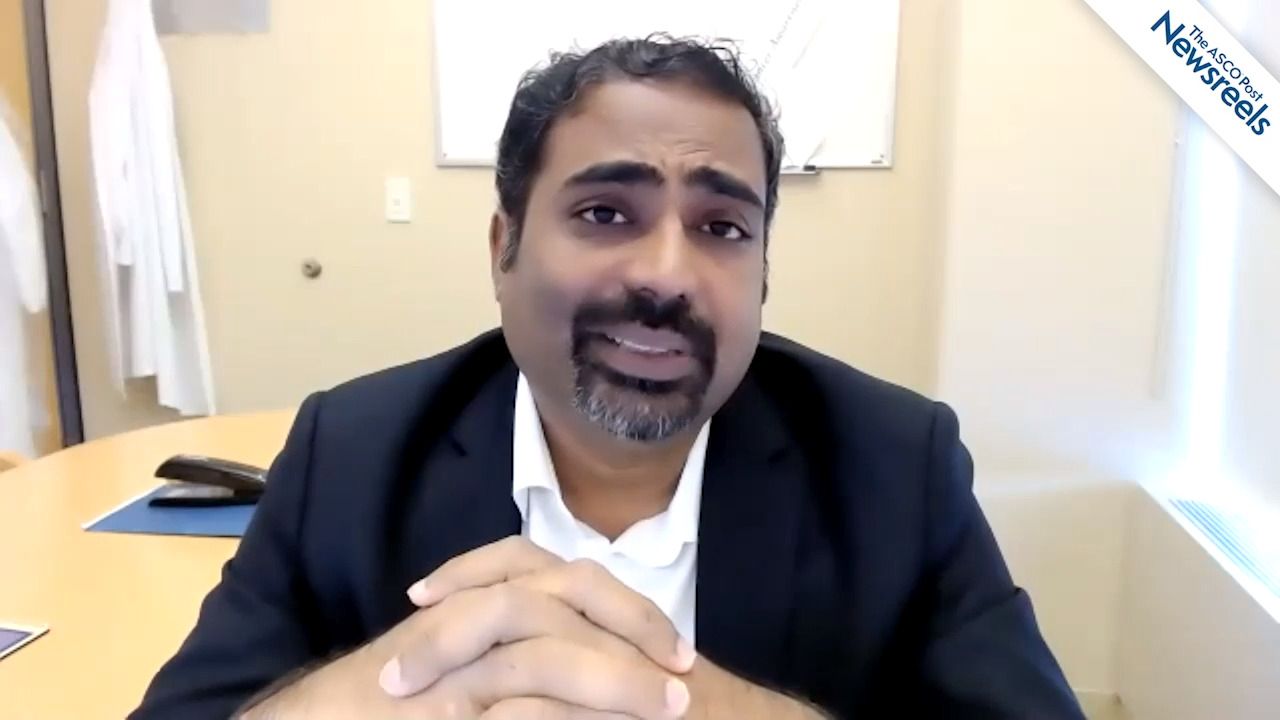Melinda L. Telli, MD, on Breast Cancer: Neoadjuvant Talazoparib for Early HER2-Negative Disease
2021 ASCO Annual Meeting
Melinda L. Telli, MD, of Stanford University, discusses results of a phase II study on neoadjuvant talazoparib in germline BRCA1/2 mutation–positive, early HER2-negative breast cancer. In this setting, talazoparib monotherapy was active and yielded pathologic complete response rates comparable to those observed with combination anthracycline and taxane-based chemotherapy regimens (Abstract 505).
The ASCO Post Staff
Nadia Harbeck, MD, PhD, of Ludwig Maximilian University of Munich, discusses first phase III results from a prospective high-risk cohort of patients with luminal breast cancer, which showed a good prognosis in some women with more than four positive lymph nodes and low recurrence scores. The study also showed that a lower postendocrine Ki67 index and limited tumor burden may be promising criteria for chemotherapy de-escalation strategies, even in patients with high recurrence scores (Abstract 504).
The ASCO Post Staff
Sumanta K. Pal, MD, of City of Hope, discusses results from a phase II study that sought to determine whether adding berzosertib, a selective ATR inhibitor, to the standard upfront chemotherapy regimen of cisplatin with gemcitabine may improve outcomes in patients with metastatic urothelial carcinoma (Abstract 4507).
The ASCO Post Staff
Evan J. Lipson, MD, of Johns Hopkins University, discusses primary phase III results from the RELATIVITY-047 study, which showed that relatlimab plus nivolumab as a fixed-dose combination may improve progression-free survival compared with nivolumab monotherapy in patients with advanced melanoma. This is the first study to demonstrate a benefit from dual inhibition of the LAG-3 and PD-1 pathways.
The ASCO Post Staff
Robert J. Motzer, MD, of Memorial Sloan Kettering Cancer Center, discusses health-related quality-of-life data from the phase III CLEAR trial, which compared lenvatinib plus pembrolizumab or everolimus vs sunitinib as first-line treatment for patients with advanced renal cell carcinoma (Abstract 4502).
The ASCO Post Staff
Vamsidhar Velcheti, MD, of New York University, discusses overall survival and exploratory subgroup analyses from the phase II CodeBreaK 100 trial, which evaluated the use of sotorasib in pretreated KRAS G12C–mutant non–small cell lung cancer (Abstract 9003).





